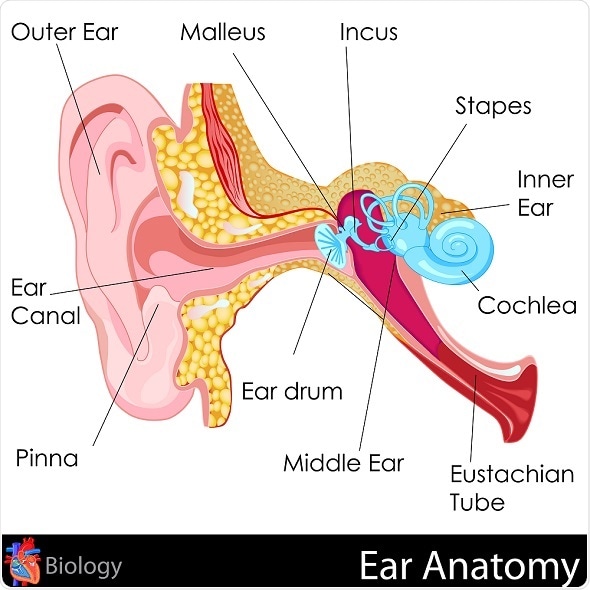For All The Latest Medical News, Health News, Research News, COVID-19 News, Dengue News, Glaucoma News, Diabetes News, Herb News, Phytochemical News, Cardiology News, Epigenetic News, Cancer News, Doctor News, Hospital News
Tinnitus or “ringing of the ears” is a symptom of an underlying condition rather than a disease in itself.
Patients complain of hearing sounds or noises even when there are no actual sounds in the background.
In the normal course sounds pass through the ear canal and fall on the ear drum that marks the end of the outer ear and beginning of the middle ear.
The middle ear amplifies and passes on the sound information to the inner ear.

The inner ear contains the cochlea and the auditory nerve.
The cochlea looks like a sea shell and is a coiled, spiral tube that contains a large number of sensitive hair cells.
The nerve picks up sound information and relays it to the brain.
If some parts of the cochlea are damaged the brain tries to seek out information from other healthy parts of the cochlea.
This over-representation of sounds leads to the symptoms of tinnitus.
Tinnitus could be temporary or a chronic annoying or distressing condition. A temporary tinnitus is caused by exposure to a loud noise like being in a sports arena or loud concert.
Sometimes a bout of cold or flu or a blow to the head may also lead to tinnitus.
Prolonged or recurring tinnitus may occur due to (1, 2, 3, 4, 5): –
Tinnitus may be a primary sign of a deeper problem like a tumor of the inner ear called acoustic neuroma or an aneurysm that is a deformity of a blood vessel within the inner ear.
This deformity leads to ballooning of the blood vessel that carries a risk of rupture.
If there is hearing loss in one ear, difficulty in understanding speech and dizziness, there is a chance of an acoustic neuroma that is also known as vestibular schwannoma.
There is also a risk of a meningioma – a brain tumor.